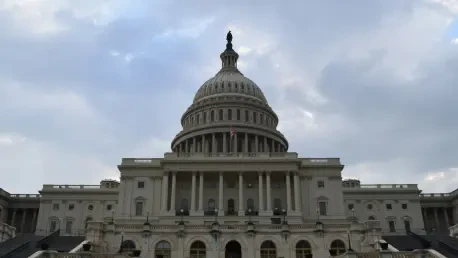Washington has embarked on a significant initiative aimed at bolstering local public safety through a $100 million grant designed to create new law enforcement positions across the state. This program requires cooperation from local governments and tribal entities, as they need to increase sales taxes to sustain these positions over time. In a legislative push supported by Governor Bob Ferguson, the focus is on boosting police presence, particularly in areas that are historically underfunded. Washington’s approach of providing initial funding while urging local jurisdictions to establish long-term financial regimes through a modest sales tax increase underscores the importance of shared responsibility in public safety.
Initial Funding and Local Cooperation
The Role of Initial State Support
The $100 million grant represents an effort to address Washington’s low ratio of police officers per capita—a concern that has been growing over recent years. By directing resources to underfunded areas, the state aims to alleviate immediate shortfalls in law enforcement personnel. The initiative emphasizes flexibility, allowing funds to also support broader criminal justice services as part of a holistic approach to community safety. Governor Ferguson’s backing of this legislation signals a political commitment to strengthening law enforcement capabilities statewide. However, the intent is to ensure that these new positions are not solely dependent on state funds, urging localities to assume fiscal responsibility for ongoing expenses.
Localities’ Financial Commitments
To address the gap in law enforcement funding sustainably, Washington’s proposal includes a notable tax policy—encouraging a 0.1% increase in local sales taxes without requiring voter approval. This strategy is particularly crucial in enabling local governments and tribal entities to develop a stable financial footing to maintain new law enforcement roles created under the grant. Instead of being a permanent state-funded solution, the initiative underscores the state’s policy direction of empowering and involving local communities in financing their policing needs. Such a policy positions the local entities not as passive recipients of aid but as active participants in crafting a sustainable law enforcement framework.
The Complexity of Expanding Law Enforcement
Challenges Faced by Local Governments
Cities like Vancouver have encountered challenges on similar fronts, notably rejecting a public safety levy amid concerns of adding burdens to existing strained services. This reflects a broader dilemma faced by municipalities: enhancing police services without further straining budgets or exacerbating conflicts with other public needs. This initiative acknowledges these complexities by offering preliminary financial aid, allowing cities to address specific requirements without immediate financial concerns hampering initial steps. However, these funds are not a panacea; they require strategic planning and community engagement to ensure successful law enforcement expansion without sacrificing other essential community services.
Broader Implications for Community Safety
The initiative’s flexible definition of public safety—extending beyond traditional police roles to include comprehensive criminal justice services—adapts to modern shifts in security paradigms. Recognizing this evolution, the policy aims to build more integrated and responsive law enforcement services, addressing community safety as a multifaceted challenge. By including various criminal justice services under the public safety umbrella, the program allows jurisdictions to tailor their spending based on actual community needs, fostering innovation and responsiveness. Ultimately, this approach seeks to balance immediate state support with long-term local commitment, framing public safety as a collaborative responsibility involving various community stakeholders.
Future Considerations
Washington has launched a major program aimed at enhancing public safety statewide by distributing a $100 million grant to establish new law enforcement positions. This initiative necessitates cooperation with local governments and tribal entities, which are expected to legally raise local sales taxes to ensure these positions are financially sustainable in the long run. Supported by Governor Bob Ferguson, this legislative effort emphasizes fortifying police presence, especially in areas that historically lack funding. By providing initial financial assistance yet emphasizing the need for local jurisdictions to adopt sustainable financial practices through a modest sales tax hike, Washington highlights the crucial concept of shared responsibility in maintaining public safety. The program is not only about expanding law enforcement but also about creating a sustainable model driven by collective action, accentuating the collaborative effort required among state, local, and tribal bodies to achieve enhanced security across communities.









